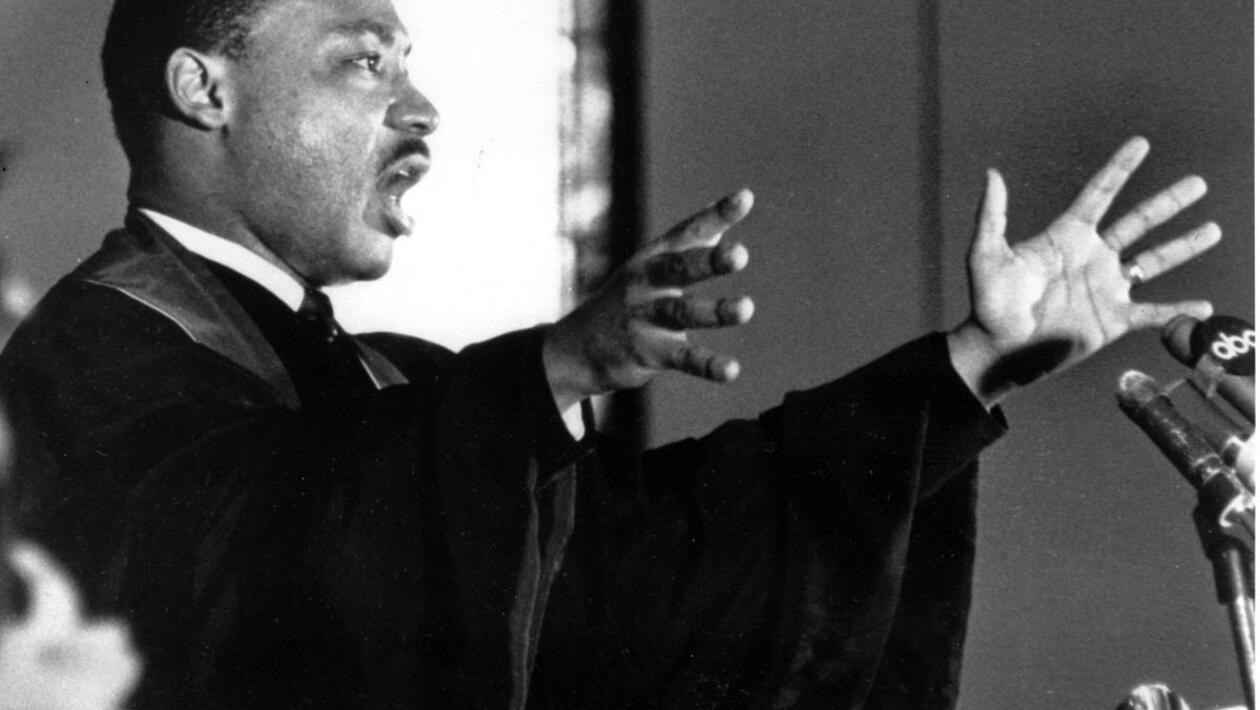Beyond Vietnam
Introduction
On 4 April 1967, King made his most public and comprehensive statement against the Vietnam War. Addressing a crowd of 3,000 people in New York City’s Riverside Church, King delivered a speech entitled “Beyond Vietnam.” King pointed out that the war effort was “taking the young black men who have been crippled by our society and sending them 13,000 miles away to guarantee liberties in Southeast Asia which they had not found in southwest Georgia and East Harlem.”
Although some activists and newspapers supported King’s statement, most responded with criticism. King’s civil rights colleagues began to disassociate themselves with his radical stance and the National Association for the Advancement of Colored People (NAACP) issued a statement against merging the civil rights movement and peace movement.
Overview
The goal of this unit is for students to analyze, within the context of a particular historical period, Dr. King’s decision to speak out against the war in Vietnam. Why did he make this choice? What risks were involved? How was his speech received? Ultimately, this unit asks students to connect this speech to the present; Students examine Dr. King’s ideas about America’s role in the world -their relevance in the past and the present. In addition, this lesson aims to help students see King as more than a civil rights leader, as they explore the political and social implications of King’s position against the war and his call for economic justice.
However, without the appropriate historical context students may have difficulty making sense of the complex issues that connect the war and domestic policy. Therefore, we recommend that students have a basic understanding of the history of the war in Vietnam and the public debate that was taking place in the United States at that time.
King’s “Beyond Vietnam” speech covers a great deal of information, and we encourage teachers to break the document into at least two parts to make the material more manageable for students. This lesson utilizes newspaper editorials that were published following King’s speech to help students explore both sides of the issue and give them a broader historical context.
Student Objectives
To use primary sources to analyze the reasons Dr. King spoke out against the war in Vietnam and how this action was received
To place King’s “Beyond Vietnam” speech into a historical, social, and political context
To improve analytical and critical thinking skills
To develop strong arguments based on primary source materials
To broaden students’ understanding of King beyond that of just a civil rights movement leader
Author: Erin Cook Subject: English Language, U.S. History, World History Grades: 9-12 Teaching Standard:
Era 9: Postwar United States, Standard 2C
Essential Question
- 1
Why did King speak out against United States’ involvement in Vietnam when he risked doing harm to his status as a civil rights movement leader, as well as harming the movement itself?
Sub Questions
- 1
What can we learn about King from his statement on the war that we most likely would not learn from a traditional teaching of King?
- 2
What might the response to King’s statement teach us about the social and political climate during this period?
- 3
How are King’s words relevant today?


